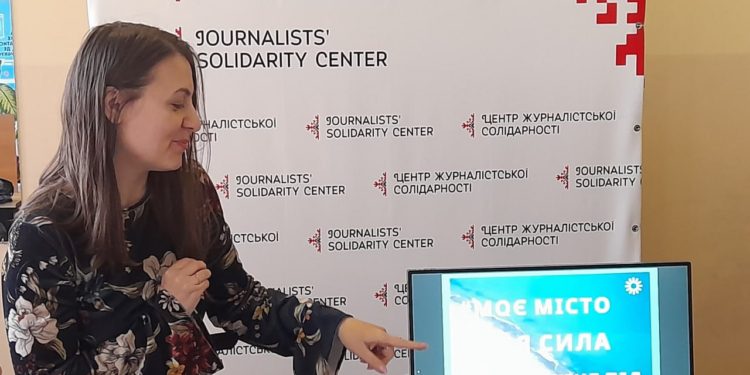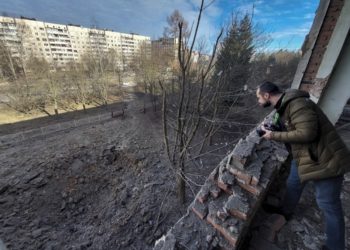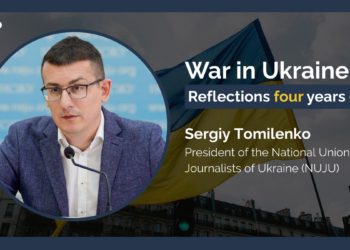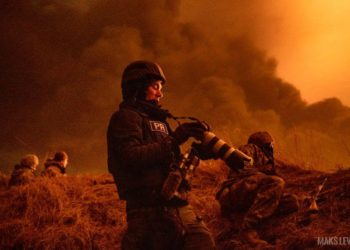The training called Methods Of Hostile Propaganda, Use Of Narratives Against Ukraine And Methods Of Debunking Them took place in the Chernivtsi office of the unified Western Ukrainian Journalists’ Solidarity Center (JSC) of the National Union of Journalists of Ukraine (NUJU). Its participants, together with an experienced media trainer/teacher of the Department of Journalism of Yuriy Fedkovych Chernivtsi National University/candidate of sciences in social communications, Larysa Rarenko, considered examples of creating fakes and their distribution on various media platforms.
“The very first method of combating misinformation is to tell the truth a little faster than the enemy can tell its lies. After all, any of their propaganda can be quickly broken with facts. With each fake, they try to drive the audience into a certain frame, within which you can do anything, so as not to let the fake “die:” discuss, argue, etc. Manipulators usually present information one-sidedly and distort cause-and-effect relationships, but they can also provide true data but with a false context, says Larysa Rarenko.
A comprehensive approach is needed to combat disinformation, which would include the work of special agencies to ban harmful content, build effective communications and form one’s own positive narratives, develop journalism and create quality content for various communication channels, and develop media literacy.
“Russian propaganda is basically primitive and limited. For several years, we have observed virtually the same set of metanarratives. Manipulative texts are often written by semi-literate people. Its strength is that there is a lot of it,” emphasized Larysa Rarenko.
In order not to fall into this trap, it is important to pay attention to the date of publication (old news and fakes are often distributed) and to the details, “turn on logic and turn off emotions.” Various tools can be used: checking images, sources, domains, sites, authors, etc. StopFake contains many such tips, and texty.org.ua created the Fake Grit application, which warns about manipulations, fakes, custom materials, and propaganda.
You can fight against disinformation only comprehensively. This approach should include:
- prohibition of harmful content. This should be done by special organizations;
- building effective state communications and formation of positive narratives;
- development of quality journalism and creation of quality content on various platforms.
“Why do both journalists and ordinary citizens often resort to fact-checking? Because fact-checking is fast: disproved – published. It is worth doing more media literacy. This is a long process, and the result can be seen in the long term,” said Larysa Rarenko.
Call the Western Ukrainian JSC Lviv-Chernivtsi at 097 907 9702 (Nataliya Voitovych, the Lviv JSC coordinator, Volodymyr Bober, an assistant). The Center’s address is 5 Solomiyi Krushelnytskoyi Street.
ABOUT JSC
The Journalists’ Solidarity Centers is an initiative of the NUJU implemented with the support of the International and European Federations of Journalists and UNESCO. The initiative is designated to help media representatives working in Ukraine during the war. The Centers operate in Kyiv, Lviv, Ivano-Frankivsk, Chernivtsi, Zaporizhzhia, and Dnipro and provide journalists with organizational, technical, legal, psychological, and other types of assistance.
ABOUT UNESCO
UNESCO is the United Nations Educational, Scientific, and Cultural Organization. It contributes to peace and security by promoting international cooperation in education, sciences, culture, communication, and information. UNESCO promotes knowledge sharing and the free flow of ideas to accelerate mutual understanding. It is the coordinator of the UN Action Plan on the Safety of Journalists and the Issue of Impunity, which aims to create a free and safe environment for journalists and media workers, thus strengthening peace, democracy, and sustainable development worldwide. UNESCO is working closely with its partner organizations in Ukraine to provide support to journalists on the ground.
The designations employed and the presentation of material throughout this digest do not imply the expression of any opinion whatsoever on the part of UNESCO concerning the legal status of any country, territory, city, or area or its authorities or concerning the delimitation of its frontiers or boundaries.
The authors are responsible for the choice and the presentation of the facts contained in this digest and for the opinions expressed therein, which are not necessarily those of UNESCO and do not commit to the organization.
Western Ukrainian JSC information service

 THE NATIONAL UNION OF
JOURNALISTS OF UKRAINE
THE NATIONAL UNION OF
JOURNALISTS OF UKRAINE
















Discussion about this post